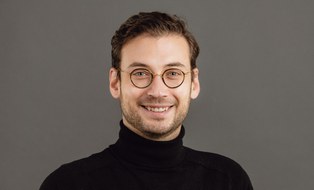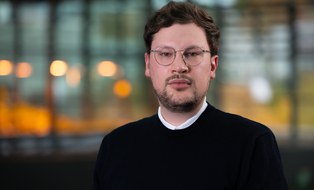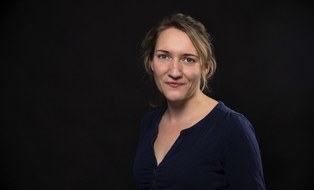Associated Members and Projects
Table of contents
Associated Members
Dr. Anke Schwarz
Dr. Anke Schwarz
Researcher
Send encrypted email via the SecureMail portal (for TUD external users only).
Research Interests:
- City, water practices and futures
- political geographies
Tie-ins to TUDiSC:
- Disruption and contingency from a socio-spatial perspective.
Publications (selection):
Further information on the personal page of Anke Schwarz...
Prof. Dr. Blagoy Blagoev
 © Michael Kretzschmar
© Michael Kretzschmar
Professor
NameProf. Dr. Blagoy Blagoev
Send encrypted email via the SecureMail portal (for TUD external users only).
Visiting address:
Georg-Schumann-Bau
Süd, B-Flügel, SCH B235
Münchner Platz 3
01187 Dresden
Office hours:
- Wednesday:
- 11:00 - 12:30
- via Zoom, please send an email to register
Please register beforehand: Bitte melden Sie sich über unser Terminbuchungsportal an: https://stbappts.tu-dresden.de/index.php/apps/appointments/pub/PJA%2BSW8qmdr6NnTbFCxTrDu6F089Jrt28u3pSQxZWUsxlIVs%2B4abvw%3D%3D/form
Research Interests
- Time and temporality in organizations
- Organizational change and persistence
- New forms of working and organizing
- Business sustainability
More information on Prof. Dr. Blagoy Blagoes website
Michael Klipphahn-Karge
 © M. Kretzschmar, TUD
© M. Kretzschmar, TUD
Fellow
NameMichael Klipphahn-Karge
Send encrypted email via the SecureMail portal (for TUD external users only).
Rebekka Roschy
 © Privat
© Privat
Fellow
NameRebekka Roschy
Send encrypted email via the SecureMail portal (for TUD external users only).
Visiting address:
Z21, Room 216b Zellescher Weg 21
01217 Dresden
Rooms 302, 302A, 302B, 010
Postal address:
TUD Dresden University of Technology Schaufler Kolleg@TU Dresden
01062 Dresden
Associated Projects
Ongoing Projects
Involved: JProf.in Susann Wagenknecht (DIPCY)
Duration: 7/2022 until 12/2025
Funding: SMWK/SAB
The proposed project aims to investigate the development of a Saxon hydrogen infrastructure from a sociological perspective and with qualitative, especially ethnographic methods. The aim of the project is to develop an empirically based understanding of the coordinative dynamics associated with a profound infrastructural upheaval in industrial energy supply. This is because, as demonstrated by efforts to achieve a CO2-neutral hydrogen circular economy in the context of an ecological "energy turnaround," the transformation of infrastructures poses a complex problem of cooperation and coordination. The proposed project aims to understand in which negotiations this problem is addressed: Which social logics or conventions are mobilized in these negotiations and which strategic actors are involved in them and how? What needs to be negotiated is, on the one hand, the integration of technical innovations into existing infrastructural conditions and, on the other hand, the justification of the efforts, costs and possibly serious changes that infrastructural reconstruction entails. What needs to be observed here is how the disruptive potential inherent in infrastructural restructuring is negotiated and, if necessary, safeguarded. For the analysis of these negotiations, the proposed project takes the Saxon hydrogen economy (in its national and international interconnectedness) as its case study. The project combines the approach of multi-sited ethnography with impulses from qualitative interview research (expert interviews) and conducts so-called practice transfer workshops.